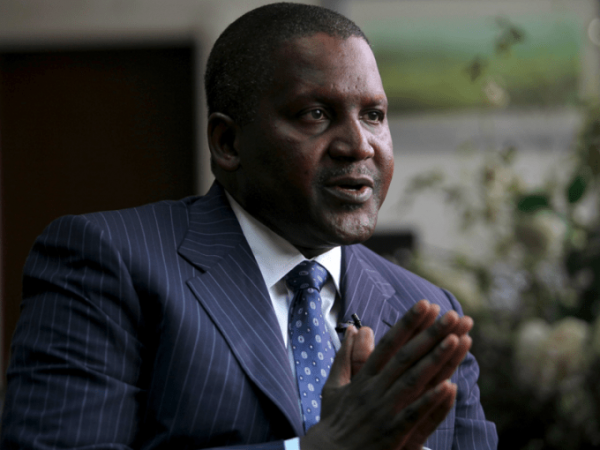Diversification Will Bring More Benefits, Says Guinness MD
 The ongoing efforts to diversify the economy from dependence on crude oil will enhance national development and create more opportunities for Nigerians, Guinness Nigeria Plc Managing Director, Mr Peter Ndegwa, has said.
The ongoing efforts to diversify the economy from dependence on crude oil will enhance national development and create more opportunities for Nigerians, Guinness Nigeria Plc Managing Director, Mr Peter Ndegwa, has said.
He said the diversification of the economy and improvement from a raw-material only country to manufacturing economy will create a more stable national economy with better opportunities for the citizens.
In an interview, Ndegwa said: “I like two things the government is saying, one is: diversify from oil. The overdependence on oil is basically part of what you are speaking about, and then add more value locally rather than being an import country. So, it is not just dependence on oil, but add more value. Let’s localise production, source locally, let us export. In particular ECOWAS is a big market for Nigeria. The regional blocks are within Africa, we can source more trade regionally within Africa.’’
He explained that Guinness Nigeria has confidence in the diversification and local manufacturing programme of the government, noting that the company has seen increase in its exports to other West African countries, including Ghana and Cameroun.
He pointed out that the economy has witnessed commendable improvements in foreign exchange management and power supply.
“There is no doubt that a number of areas have improved. First will be the availability of liquidity on the foreign currency side, especially for manufacturers who import raw materials and also spare parts for our plants. We have seen some level of stability both in terms of the expected range of price versus the volatility we have seen in the currency before. That is good because it improves predictability, ability to plan and even when costs are higher, it helps that we know what the price is, which is key,” Ndegwa said.
He outlined that the availability of gas has moderated the fluctuations suffered in recent period, which shortage forced companies to use diesel, which is more expensive, less environmentally-friendly and more erratic.
“Previously, we had incredible delays in getting work permits or travel permits. However, in these areas, we have seen some level of improvements. Areas I feel we could improve further are the congestion at the seaports. Our exports have doubled in the last 18 months and one of the reasons why we are doubling exports is to get foreign currency, which is very helpful for us. But we have seen some level of delays as a result of the congestions at the ports, both in terms of outbound and inbound of raw materials. As a result, two things happen to the business eventually, we incur demurrage and more transport costs and also when we don’t get the materials on time, it is challenging to ensure continuity of production. However, it is good to see that government wants to spend more money on infrastructure,” Ndegwa said.
He however noted that despite some operating challenges, Guinness has continued to grow its business by investing in production capacity to produce spirits locally, adding that the company now produce products, such as Smirnoff, Gordons, and McDowells, locally instead of importing, thus saving the country some foreign currencies.
He pointed out that local manufacturing allows the company to price these brands at the right price so that consumers can afford them.
“Our investment in spirit shows that we are committed to the future. The second is we have also increased our local sourcing. We used to source about 40 per cent locally; now we are sourcing about 75 per cent of local materials like sorghum, glass, packaging materials like labels and crown corks. This reduces our cost of doing business,” Ndegwa said.
According to him, innovation continues to be a core part of the company’s business. One aspect of the innovation is the spirits innovation however it has also expanded participation in some of the other categories, including beer and soft drinks. Guinness Nigeria is the only total beverage business which has spirits, beer and soft drinks, giving it a bit more opportunity to service consumers, compared to if it were specialists in a particular area.
“It is about expanding our portfolio through innovation and also through building existing brands. It is about lowering our costs both through local sourcing and locally produced brands instead of importing. We also continue to drive our productivity agenda, which is all about reducing waste and being more effective. Finally, it is being close to the consumer in terms of the way we go to market, our products being better distributed,” Ndegwa said.
He outlined that Guinness Nigeria is focused on sustainable growth by ensuring that it conducts its business in a responsible way and in line with its global objective of not only to be the best performing business, but also to be the most trusted and respected.
According to him, Guinness Nigeria would not have been in Nigeria for 67 years if it had taken a short cut in the way it drives its sales. So, the company’s campaign on responsible drinking of alcohol is in tandem with its sustainable business growth objective which emphasises responsibility in the way that consumers engage with alcohol so that people can have a balanced lifestyle that incorporates alcohol in their ways of celebrating or enjoying themselves.
“Abusing alcohol is harmful and we do not want harm in our society. Part of our responsibility is to ensure that there is increased awareness of the dangers of alcohol misuse and how to reduce related harm. And where we have carried out a number of these initiatives we have recorded a reduction in the incidences of abuse. This means that a lot of the work we have done around the “don’t drink and drive” initiative has had impact. So the level of awareness is much higher.
“We believe that we will create a better society if we have a better understanding about alcohol use and its role in a balanced lifestyle. That is why it is not in conflict with our commercial interest. In fact, it supports our ability to be in business because we will be a more respected organization if we are seen to be responsible,” Ndegwa said.







